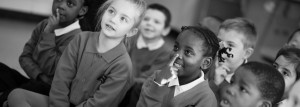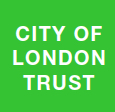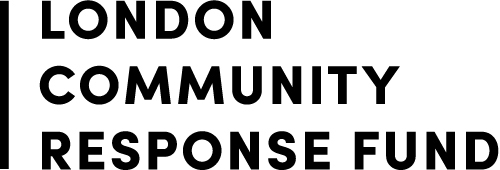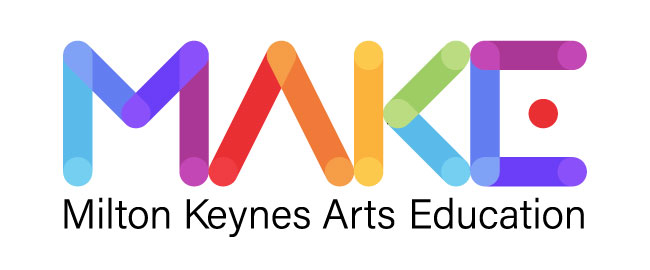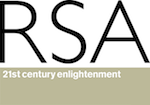Art is… Essential
|
By Carys Owen (Cuckoo), Development and Partnerships Coordinator
Sir Ken Robinson
Following years of squeezed school budgets and the narrowing of the curriculum, arts activities at primary schools are in severe decline. The “Taking Part” Survey published by the Department of Culture, Media and Sport found participation in the arts among primary-age children down by a third. The Education Policy Institute’s 2017 report found a dramatic fall in the uptake of an arts subject at secondary to the lowest level in a decade, with data indicating the decline is set to continue. Arts and culture are central to British life and our national identity, and the arts allow us to celebrate our diversity, learn about our history, and explore other worlds. But children from disadvantaged backgrounds, those who benefit most from an arts-rich learning environment, are now the ones most likely to lose out. Warwick University researcher, Professor Jonathan Neelands cautioned:
The arts also give people a space to communicate, perform, learn, and step out of their comfort-zone. Mental health problems are a growing public health concern, affecting 1 in 4 people in the UK, with 1 in 10 experiencing problems with mental health before the age of 16. A Parliamentary report on creativity and wellbeing released in 2017 found that the performing arts helped to reduce sickness, anxiety, depression and stress. The All-Party Parliamentary Group’s report demonstrated that the arts make an invaluable contribution to a “healthy and health-creating society” and recommended cross-governmental commitment to the arts to help prevent, as well as treat, mental and physical health issues. We know that creativity is essential for both this generation and the next. The arts and cultural sectors are vital contributors to employment and the UK’s economic growth, with the creative industries generating £84.1 billion per year to the economy and providing 1 in every 11 UK jobs.
Creativity is a skill that is vital across industries and disciplines. Just this week, the Evening Standard reported that Nobel Prize-winning scientists are almost three times more likely than the general population to play a musical instrument or regularly participate in the arts. This evidence suggests that a STEAM approach – Science, Technology, Engineering, the Arts and Mathematics – is the way forward in education for children and young people’s employability in future industries. A great example of this was the hugely successful #ArtsConnect Festival of Creativity hosted by STEAM Co. last month which was a celebration of creativity in schools and a call to action.
Policy & Research The Cultural Learning Alliance’s ‘Case for Cultural Learning’ has been a key piece of work that has supported further research into the impact of arts in education and the youth sector. The data findings strengthen the case for the arts at a time when the EBacc threatens to push aside creativity in the curriculum. Some key research findings from the updated Case for Cultural Learning include:
Earlier this month, The Fabian Society announced its new project that aims to provide definitive evidence of the impact that school cuts have had on primary age children’s access to the arts. The outcomes of the report will be shared with policy makers in the hope that recommendations will be adopted by political parties. The Arts Council also announced the next steps for the Durham Commission, which aims to identify the key factors of a creative education, looking at examples of effective practise and using robust analysis to identify gaps in provision within the current education system. The RSA and the Education Endowment Foundation also launched their two-and-a-half year Learning About Culture programme which will explore how cultural learning impacts on a range of educational outcomes, including attainment, non-cognitive development and the creativity of students. These developments and research projects suggest that there is a demand for more tangible data that supports cultural learning.
What Next?One of Artis’ priorities is to advocate the importance of the arts for learning, wellbeing, and employment. Going forward, we will be supporting research through conversations with our partner schools, alongside greater evaluation of our own creative programmes. Artis will be sharing our programme evaluations to contribute and engage with sector-wide discussions about cultural learning. Now, more than ever, we need to address this “arts gap”. We must ensure that there are sustained opportunities for arts learning in the classroom and beyond. And, from a future economic standpoint, it is vital that there are opportunities for professional artists and creatives to develop, and for young people be inspired to pursue a career in the arts or creative industries. Watch this space for more news about Artis’ programmes, and opportunities to get involved and have your say…
Sources and suggested reads:Durham Commission on Creativity and Education The only way to beat the robots is to back arts education in schools (Evening Standard, 2018) First steps for Durham Commission on creative education, (Arts Professional, 2018) The Fabian Society: Primary Age Children’s Access to the Arts Entries to arts subjects at Key Stage 4, Rebecca Johnes (EPI, 2017) Enriching Britain: Culture, Creativity and Growth, Warwick Commission Key Research Findings for the Case for Cultural Learning, CLA |
22 Mar 2018 |


